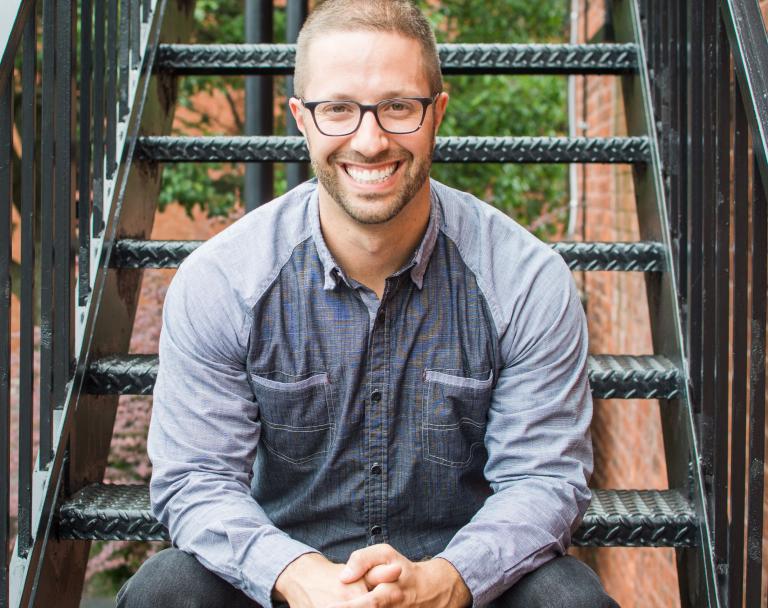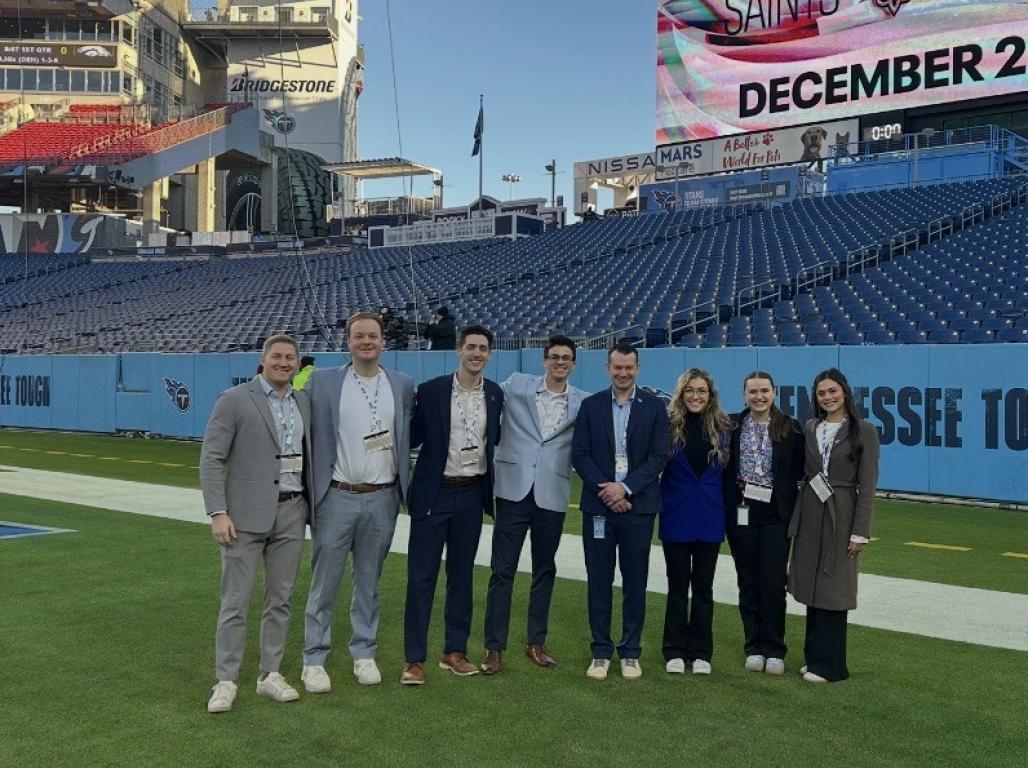
Justin Emig ‘03 is committed to e-commerce. To him, it’s more than just a job.
As VP, E-Commerce for American Leather Holdings, Justin Emig ’03 enjoys describing what he does and showing why e-commerce is so useful to growing business.
American Leather Holdings has several brands that range in digital commerce maturation, he says. There is a pure play (sold only through the internet) e-commerce brand that sells direct to the consumer, while the remaining brands are sold through retail and design partners.
“My role, quite simply, is to make it easier for companies to do business with us using digital commerce tools,” he explains. Whether it is working to drive direct sales of products to consumers online, implementing digital tools that help retailers better sell their product to consumers, or redesigning one of the customer portals to help them place/manage orders, he aims to reduce friction in those journeys. He states that “less friction and making it easier to do business with the American Leather organizations drives a greater share of their dollars, improves our reputation, and improves self-service, which drives more efficiency.”
What Exactly is E-Commerce?
Emig says, “This is a good question to think about in a world where we are (hopefully) on the back-half of COVID, since COVID was an e-commerce definition change agent.” His definition of e-commerce is “less pure play commerce and more of the role digital plays in the buying journey.” He believes consumers are increasingly channeling-agnostic in their purchase behavior. Elements that COVID accelerated such as Buy Online, Pick Up In-Store (BOPIS) or Click and Collect as it is called in Europe, have reduced the friction lines between retail and what was historically coined e-commerce. E-commerce in 2022 and beyond is “using the channel of digital to improve discovery, initiate trial, and build loyalty...thus generating commerce.”
When Emig graduated from YCP in 2003 there was no major in e-commerce. How did he become interested in this area of business? Emig says York College positioned him well in Business Management and Marketing, which led him to pursue a role in brand management.
While he was working in brand management, Emig says that e-commerce was beginning to earn a larger share of the dialogue. The organization that he worked with at the time started to explore this as a potential growth channel. “Working with other brand leaders, we developed a flanking strategy to enter the e-commerce market through direct-to-consumer channels (selling direct on our own websites), as well as through an e-tailer strategy (i.e. Amazon).”
He says this exercise “proved the concept, and the organization leaned into the discipline, which I continued to advance in.” From there, he was hooked. Since curriculum anywhere was nascent, he self-taught (along with many others) what e-commerce means, what channels worked, how to scale this initiative, and ultimately, what the future of e-commerce looks like.
While many of the fundamentals can be traced to the overall program, he can put his finger on two specific YCP courses that guided his career. Marketing Strategy with Dr. Thomas Lepson, and Business Policy with Dr. David Greisler. To this day (almost 20 years later), he says, “I look back on the theories and tactics taught during those classes and apply them to business problems.”
What Are Current E-commerce Trends and Challenges?
Emig says, “COVID was what I call an eCommerce time machine. It advanced the field 10 years in 10 months. This from a customer adoption standpoint (think grocery), a technology standpoint, and the relationship of retail to online buying.” He thinks so much change has happened in a short period of time that trends are moving even more quickly. Historically, building an online store would take significant investment, scarce resources, and a year of time. “Platforms like Shopify,” he says, “have made websites accessible to anyone at a fraction of the time and cost.” Current trends are the maturation of those platforms, as well as harmonizing the relationship of digital and physical retail. Other more newsworthy trends are the role social media plays in the commerce journey, the role of privacy in your commerce journey, and how to make sense of all the data we have available.
Emig says, “I am a marketing nerd through and through. Whether it is the latest changes from Google, privacy and data, the evolving consumer sentiment, or the latest psychographic/behavioral neuroscience research, I am focused on the customer and why they choose brands/products.”
Another fundamental Emig picked up at YCP is “endless learning and forcing yourself to be uncomfortable. While I haven't gone back for my MBA, I have taken every Digital Marketing certification I am able to get my hands on. I have taught myself popular coding languages. I listen to 30-40 podcasts a week, read 40 plus articles a week... I am obsessed with improving my craft each and every day. The rate of change in e-commerce and digital marketing is at a breakneck pace. Those who are satisfied with what they know have become outdated by definition. This is a career, not a job.”




